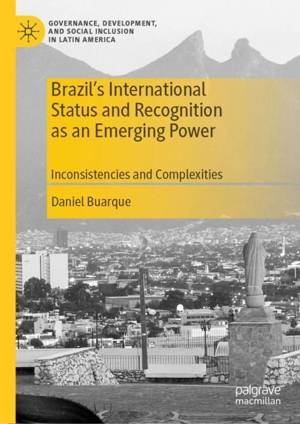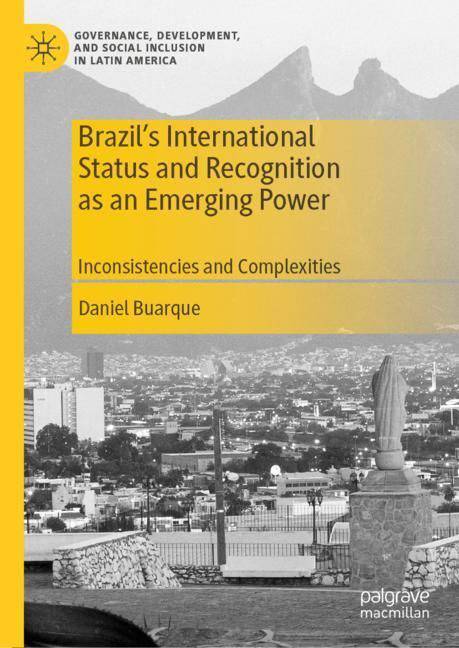
- Retrait gratuit dans votre magasin Club
- 7.000.000 titres dans notre catalogue
- Payer en toute sécurité
- Toujours un magasin près de chez vous
- Retrait gratuit dans votre magasin Club
- 7.000.000 titres dans notre catalogue
- Payer en toute sécurité
- Toujours un magasin près de chez vous
Brazil's International Status and Recognition as an Emerging Power
Inconsistencies and Complexities
Daniel Buarque
126,95 €
+ 253 points
Description
This book focusses on the intersubjective character of status in order to understand the degree to which Brazil has been able to achieve an increase in its global status. Buarque compares the long-standing ambitions of Brazilian foreign policy elites with external perspectives of observers in states with greater international status who would need to recognize Brazil as a great power and a state increasing in international prestige. Buarque develops a multidisciplinary approach influenced by sociology and psychology scholarship and gives special attention to the importance of recognition whilst drawing on international relations scholarship focussed on prestige, identity, roles and ontological security. In so doing, the book argues for the difference between the status and role Brazil aspires to have in the world and the external beliefs about the level of prestige of the state, amounting to status inconsistency and anxiety leading to ontological insecurity. It proposes that powerful states perceive Brazil as a coveted pawn in international politics and outlines a typology of what states that aspire to have more prestige need to do to achieve recognition for higher status.
Spécifications
Parties prenantes
- Auteur(s) :
- Editeur:
Contenu
- Nombre de pages :
- 200
- Langue:
- Anglais
- Collection :
Caractéristiques
- EAN:
- 9783031475740
- Date de parution :
- 01-02-24
- Format:
- Livre relié
- Format numérique:
- Genaaid
- Dimensions :
- 148 mm x 210 mm
- Poids :
- 426 g







